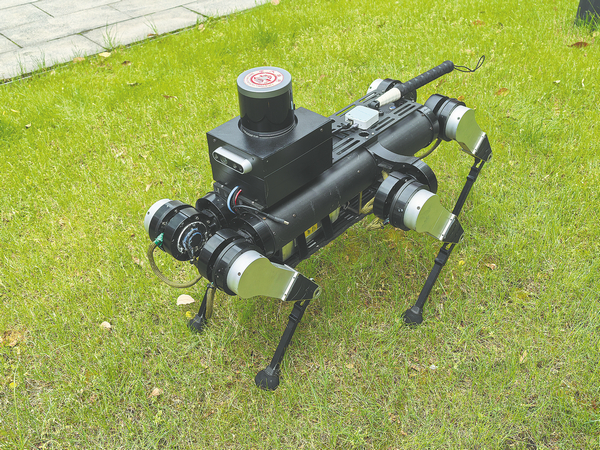

"China's walking robots are developing rapidly. Their basic components can now be produced at good quality and a low price. We see the timing of (the robot guide dog) industrialization has come and we can mass-produce them based on market demand," says Gao.
He also indicates that the team is cooperating with companies and expects to roll out a batch of probationary robot guide dogs by the end of this year, which is good news for the visually impaired.
The robot dogs are improving based on field test feedback. Both Zhang and Li have an upbeat attitude.
Li, who has participated in the field test, says she felt "surprised" by the robot dog: "The research teams are thoughtful and considerate, and are continuously making updates. As the robot dog is electronic, it will make it easier to get into public places than with traditional guide dogs… I am pleased to join the test as such high technology is likely to change our lives in the near future.
"I will probably try the robot guide dog (when it becomes available). Robots can be very precise and reliable as they seldom make subjective mistakes," says Zhang.
It is worth noting that the research team is looking to apply the robot guide dog in more areas. For instance, the robot can also guide and accompany people with Alzheimer's disease, in which the team sees great future demand and potential, according to Gao.
Contact the writers at wangxin2@chinadaily.com.cn